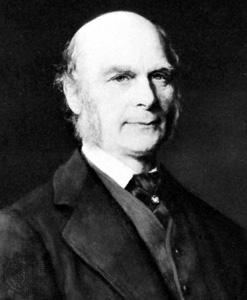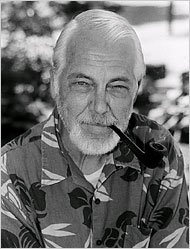Related Research Articles

Human behaviour genetics is an interdisciplinary subfield of behaviour genetics that studies the role of genetic and environmental influences on human behaviour. Classically, human behavioural geneticists have studied the inheritance of behavioural traits. The field was originally focused on determining the importance of genetic influences on human behaviour. It has evolved to address more complex questions such as: how important are genetic and/or environmental influences on various human behavioural traits; to what extent do the same genetic and/or environmental influences impact the overlap between human behavioural traits; how do genetic and/or environmental influences on behaviour change across development; and what environmental factors moderate the importance of genetic effects on human behaviour. The field is interdisciplinary, and draws from genetics, psychology, and statistics. Most recently, the field has moved into the area of statistical genetics, with many behavioural geneticists also involved in efforts to identify the specific genes involved in human behaviour, and to understand how the effects associated with these genes changes across time, and in conjunction with the environment.
Thomas J. Bouchard Jr. is an American psychologist known for his behavioral genetics studies of twins raised apart. He is professor emeritus of psychology and director of the Minnesota Center for Twin and Adoption Research at the University of Minnesota. Bouchard received his PhD from the University of California, Berkeley in 1966.
Richard D. Arvey is an American psychology professor.
The Minnesota Center for Twin and Family Research is a series of behavioral genetic longitudinal studies of families with twin or adoptive offspring conducted by researchers at the University of Minnesota. It seeks to identify and characterize the genetic and environmental influences on the development of psychological traits.

David Thoreson Lykken was a behavioral geneticist and Professor Emeritus of Psychology and Psychiatry at the University of Minnesota. He is best known for his work on twin studies and lie detection.

Nancy L. Segal is an American evolutionary psychologist and behavioral geneticist, specializing in the study of twins. She is the Professor of Developmental Psychology and Director of the Twin Studies Center, at California State University, Fullerton. Segal was a recipient of the 2005 James Shields Award for Lifetime Contributions to Twin Research from the Behavior Genetics Association and International Society for Twin Studies.

Irving Isadore Gottesman was an American professor of psychology who devoted most of his career to the study of the genetics of schizophrenia. He wrote 17 books and more than 290 other publications, mostly on schizophrenia and behavioral genetics, and created the first academic program on behavioral genetics in the United States. He won awards such as the Hofheimer Prize for Research, the highest award from the American Psychiatric Association for psychiatric research. Lastly, Gottesman was a professor in the psychology department at the University of Minnesota, where he received his Ph.D.

Dorret I. Boomsma is a Dutch biological psychologist specializing in genetics and twin studies.
Nicholas Gordon Martin is an Australian behavior geneticist who has published over 1300 peer-reviewed articles on topics including the heritability of religion and intelligence and medical disorders such as endometriosis. Martin is among the most cited medical scientists in the Southern Hemisphere, with a number of citation classics including "Genes, culture and personality: An empirical approach" that he co-authored with Lindon Eaves and Hans Eysenck, "Analysis of the p16 gene (CDKN2) as a candidate for the chromosome 9p melanoma susceptibility locus" (Nature, and "Genetic and environmental contributions to alcohol dependence risk in a national twin sample".
The International Society for Twin Studies (ISTS) is an international, non-profit scientific organization. The aim of the society is to advance research and knowledge in all fields of science related to twins and/or twin studies, for the benefit of both twins and their families as well as worldwide scientific communities.

The Behavior Genetics Association (BGA) is a learned society established in 1970 and which promotes research into the connections between heredity and behavior, both human and animal. Its members support education and training in behavior genetics; and publish Behavior Genetics, a journal on the topic.
John Keith Hewitt is a British-American behavioral geneticist and professor of psychology and neuroscience at the University of Colorado Boulder, where he directs the Institute for Behavioral Genetics. He became a naturalized citizen of the United States in 1996.

Gerald "Jerry" McClearn was an American behavior geneticist and professor emeritus of health and human development and biobehavioral health at the Pennsylvania State University.

Ann S. Masten is a professor at the Institute of Child Development at the University of Minnesota known for her research on the development of resilience and for advancing theory on the positive outcomes of children and families facing adversity. Masten received the American Psychological Association Urie Bronfenbrenner Award for Lifetime Contributions to the Service of Science and Society in 2014. She has served as President of the Society for Research in Child Development and of Division 7 (Developmental) of the American Psychological Association.
Robert Frank Krueger is Hathaway Distinguished Professor of Clinical Psychology and Distinguished McKnight University Professor in the Department of Psychology at the University of Minnesota. Robert attended the University of Wisconsin-Madison and completed his clinical internship at Brown University. He is known for his research on personality psychology, clinical psychology, quantitative psychology, developmental psychology, personality disorders, behavioral genetics, and psychopathology. According to Krueger, the goal of his work is to "reduce the burden these problems place on society by working to understand why some people experience psychopathology, while others remain resilient." Krueger primarily studies the comorbidity between personality disorders and anxiety, as well as twins, heritability, personality development, conduct disorder, and antisocial personality disorder. He is the co-editor-in-chief of the Journal of Personality Disorders. He received the American Psychological Association's Award for Distinguished Scientific Early Career Contributions to Psychology in 2005. Krueger helped work on the section III diagnostic criteria of the Personality and Personality Disorders in the DSM-5. He is also one of the highest cited researchers according to the Web of Science.
William George Iacono is an American psychologist known for his research using behavior genetic methodologies, such as twin and adoption studies, to study the development of common mental disorders and substance abuse. He has also researched the relationship between substance use and cognitive impairment among adolescents. He is a Distinguished McKnight University Professor in the Department of Psychology at the University of Minnesota, where he is also the co-director, with Matt McGue, of the Minnesota Center for Twin and Family Research. Before joining the faculty of the University of Minnesota in 1985, he was an associate professor at the University of British Columbia.
Wendy Johnson is an American differential psychologist and professor of psychology at the University of Edinburgh. She holds the chair in Differential Development in the Department of Psychology and Centre for Cognitive Ageing and Cognitive Epidemiology at the University of Edinburgh.
Richard J. Rose is an American psychologist and behavioral geneticist. He is Emeritus Professor of Psychological & Brain Sciences at Indiana University Bloomington and of Medical & Molecular Genetics at the Indiana University School of Medicine. He is also a visiting professor at the University of Helsinki in Finland. He received his Ph.D. from the University of Minnesota in 1964, where he was advised by David T. Lykken. A founding member of the Behavior Genetics Association, he served as its president in 1999 and received its Dobzhansky Award in 2007. He is known for his research using twins to study human behavioral traits such as alcoholism and IQ. This included working as a consultant on the Minnesota Study of Twins Reared Apart in the 1970s. He began collaborating with scientists at the University of Helsinki in 1984, and received an honorary doctorate from this university in 2009.
Pierre L. Roubertoux is a French behavioral geneticist.
Shashi Shekhar, Ph.D., is a Distinguished McKnight University Professor and a Distinguished University Teaching Professor in the College of Science and Engineering at the University of Minnesota.
References
- ↑ "Matt McGue". uawards.umn.edu. Retrieved October 25, 2015.
- ↑ "Matt McGue - University of Minnesota". coursera.org. Retrieved October 25, 2015.
- 1 2 "Matt McGue : Psychology : University of Minnesota". psych.umn.edu. Retrieved July 27, 2022.
- ↑ "Historical table of BGA Meetings". bga.org. Retrieved October 25, 2015.